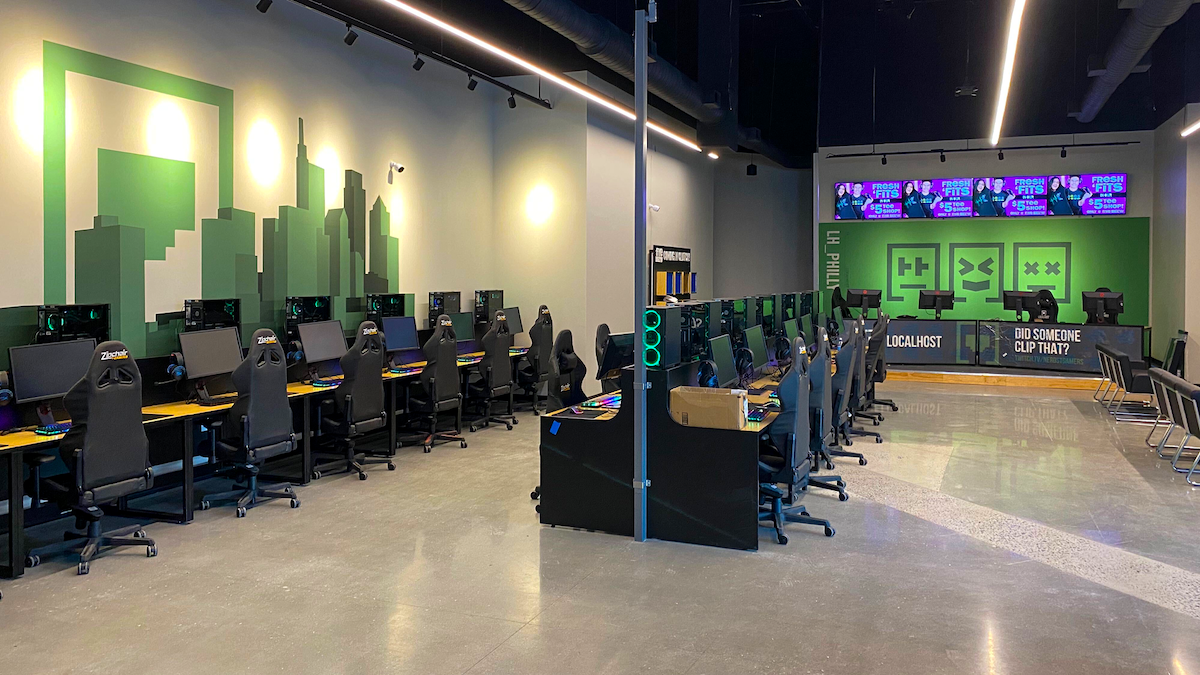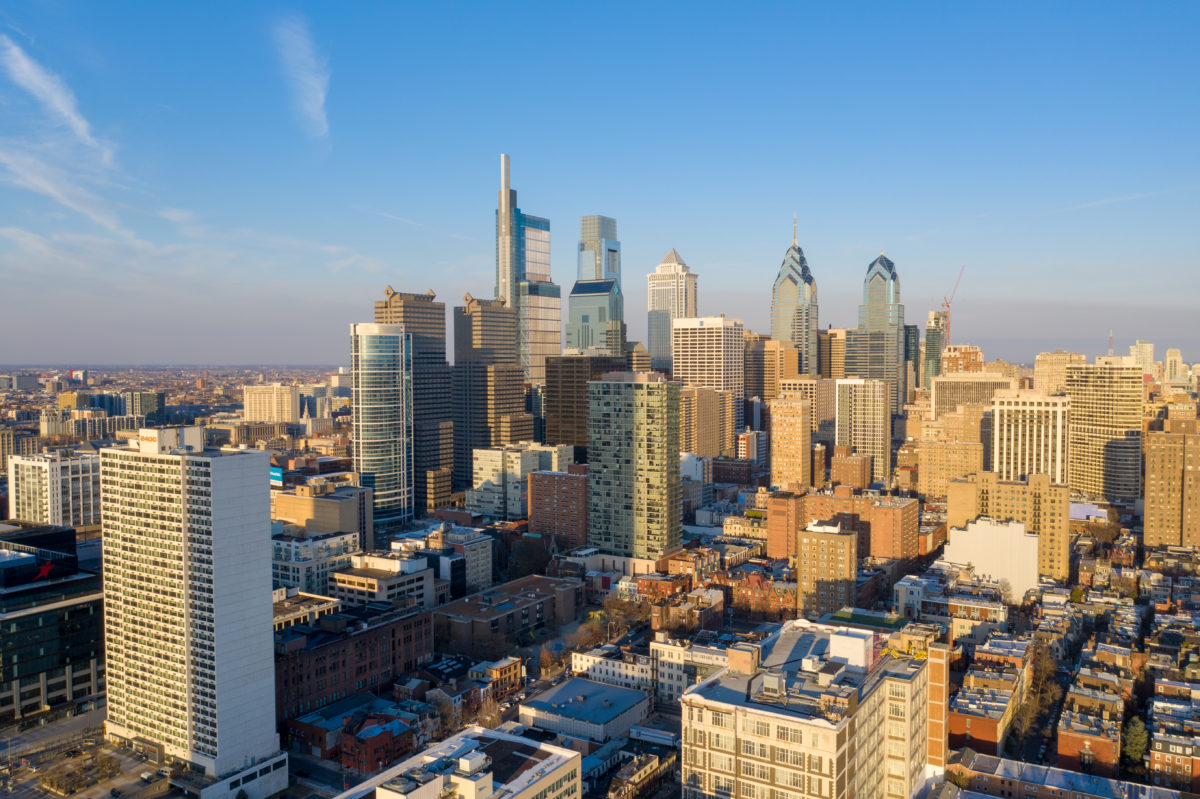If you’re a company with plans for growth right now, you’re likely a lot more sure of the future than you were just a year ago.
When the pandemic hit the Philly region last March, it sent droves of office workers home for what would stretch into at least a year for most. Some grappled with how to develop their workplace culture with no shared place to work, or laid folks off because of an uncertain financial future. Others said goodbye to office spaces forever in a move to be a remote-first company. A few even told us they’ve been more efficient than ever in this remote world.
A year ago, many feared that smaller companies and startups would falter and close up shop because of the pandemic. And while some industries, like hospitality and restaurants, have been hit hard, many tech companies flourished. In 2020, venture capital in the region bounced back on track to be in line with recent years, and hundreds of thousands more new business applications were filed than in previous years.
Thirteen months out from the start of the pandemic, companies are ready to put the lessons learned and business practices implemented to good use. It’s a particularly unique time for growth companies — those that sit roughly between 50 and 500 employees, have figured out their models and product-market fit, and are making hiring moves. For many of them, right now is a good time to do business.
But for the local companies we report on regularly we’ve begun to wonder: What’s it mean to be a Philly-based company right now? Does location matter when you can hire anyone and effectively operate from anywhere in the world?
“It’s complicated,” Samuel Reeves, CEO of FORT Robotics, told Technical.ly.
‘Applies to every worksite everywhere’
The three-year-old Washington Square-based startup builds wireless functional safety systems for autonomous machines and announced earlier this month that it raised a $13 million round of venture capital. The company has plans to grow from about 30 employees to about 75 this year, and also take over the office space of the former 1776 Rittenhouse location.
“Just because we are based here, and have the majority of our employees today in this area doesn’t mean that this is the only area we care about,” Reeves explained. “We’re dealing with a massive global mega-trend. The trend — the advent of robots — it applies to every worksite everywhere.”
FORT Robotics is keeping the mentality of looking for the best person for the job, not just the best person in the Philly region.
As FORT has been adding new team members in the last year and looks forward to the rest of 2021, its leadership is keeping the mentality of looking for the best person for the job, not just the best person in the Philly region. Their industry, and the fact that they have customers around the world, likely makes FORT a little less inclined to feel so cemented as a local company, Reeves said.
Accordingly, they’re finding a lot of robotics people in the Bay Area, Pittsburgh and Boston, and they’re “trying to draw on best the world has to offer,” he said.
However, as the team is expected to more than double this year, they are taking a bet on a bigger Philly-based HQ. Currently, a few people might report to the company’s Curtis Center office per day, but Reeves said they see a future of hybrid work for anyone who wants to use a collaborative office in FORT’s future Rittenhouse location.
There’s still a buzz about the physical office space, he said. And in the last year, they’ve discovered that while some of the huge items — like hiring leadership positions and fundraising millions of dollars — have been easier in their remote state, it’s the little things that are harder.
“It’s walking by someone’s desk and seeing what they’re working on,” Reeves said. “I process things out loud, and we get into some great, impromptu conversations. It’s the little things we miss.”
‘Doing your home city justice’
For other growth stage companies, their Philly roots have remained important to their DNA. Nerd Street Gamers, which has evolved its business model to fit a more online world in the last year, calls out to its Northern Liberties origin in its name, formerly styled as N3rd Street — a nod to North Third Street.
Last September, the company announced it would be opening a massive esports campus and new headquarters on North Broad Street a few blocks from City Hall, solidifying its personnel presence and actual gathering space in the city. The company’s plans for growth include getting to about 100 full-time employees by the end of the year, up from about 100 full- and part-time employees currently.
Lateefah Allen, a human resources generalist who joined the company earlier this year, is charged with much of the company’s recruiting plans. She called Philly the company’s “home base,” but as they grow the team, they’re considering remote-specific hires from outside the tri-state area, she said.
Some more customer-facing roles will likely return in a hybrid fashion, and their Localhost esports facilities employees will obviously report to work in-person, but roles like engineering and operations can be done from anywhere.
“Being remote opens a new world of possibility,” Allen said. “We’re adapting and learning to use this new normal.”

Pete Powell, Nerd Street’s chief of staff and VP of investor relations, said the company’s locality has always and will always be a central part of its mission. From its collaborations with Philadelphia Parks and Recreation to local investors Five Below and Comcast, he said, even as Nerd Street grows, its leadership wants the company to be embedded in communities.
And with some recent wins from investment from Silicon Valley’s Founders Fund, Powell said he hopes that brings some more street cred to Philly startups.
“Philly’s not really known for startups the way Silicon Valley is,” Powell said. “This opportunity to have Founders Fund to come in and show belief in us goes a long way. We do understand the importance of representing Philly. When you have a home base, you want to make sure you’re doing your home city justice.”
‘Leveraged the remote work environment’
Suburban social media startup LifeBrand has added the majority of its team during the pandemic, growing from a handful of employees to more than 15. It has plans to triple that number by the end of the year in a West Chester headquarters and abroad. Jemma Barbarise, LifeBrand cofounder and VP of operations, told Technical.ly that the pandemic hit right as the company was raising a $1 million seed round.
“We nearly had to abandon the business because our investors had to back out at the last minute as a result of staggering stock market losses,” she said. “We literally lost $1 million overnight.”
LifeBrand leadership credits the pandemic’s remote world culture in the company’s quick growth.
But the company secured a position in a pitch competition judged by Kevin O’Leary of “Shark Tank,” and walked away with $10,000. After that appearance, new investor interest picked up, and the company did close a $1 million seed and is now in the process of raising a $20 million Series A.
Barbarise credits the pandemic’s remote world culture in the company’s quick growth, saying they’ve been able to make partnerships around the country and world that has propelled the business. And LifeBrand’s growth is following the same path — new offices in Las Vegas and Kiev are forming, and the company is creating 25 new positions for its West Chester HQ.
They’ve also had a presence in Prague for two years through its technology partner, OAK’s LAB. A new team in Ukraine will work alongside OAK’S LAB, focused on the company’s AI and product development.
“While some meetings and calls are held outside of traditional business hours because of time zone differences, we have leveraged the remote work environment to be able to find the best people to connect with without letting their physical location be a significant influencer, and letting their talent and potential be the driving force behind our partnerships,” she said.
But leadership intentionally chose to launch and grow much of the team around Philadelphia.
“While we have our sights set on global expansion, our roots will always be here,” Barbarise said.
‘Democratization of opportunity’
Crossbeam cofounder Bob Moore said the company has always had a remote-first culture that will persist after restrictions are lifted, but its 13th and Walnut Street office will reopen when it’s safe to do so. In the last year, the company has grown to 52 people, who now work across 16 states.
They still have more team members in Philly than anywhere else, including Moore and cofounder Buck Ryan, but the lockdown last year didn’t force a major shift in company culture. Despite their comfort with remote work culture, Moore said he still sees clear benefits to building a Philly company.
“Those benefits will persist,” he told Technical.ly. “If anything, these power shifts are happening, there’s an acceleration or de-emphasis on being in a major tech hub. And the democratization of opportunity outside of those major hubs has been a net effect already happening and further accelerated by the pandemic.”







